Visiting Patek Philippe's New York 'Art of Watches' exhibition
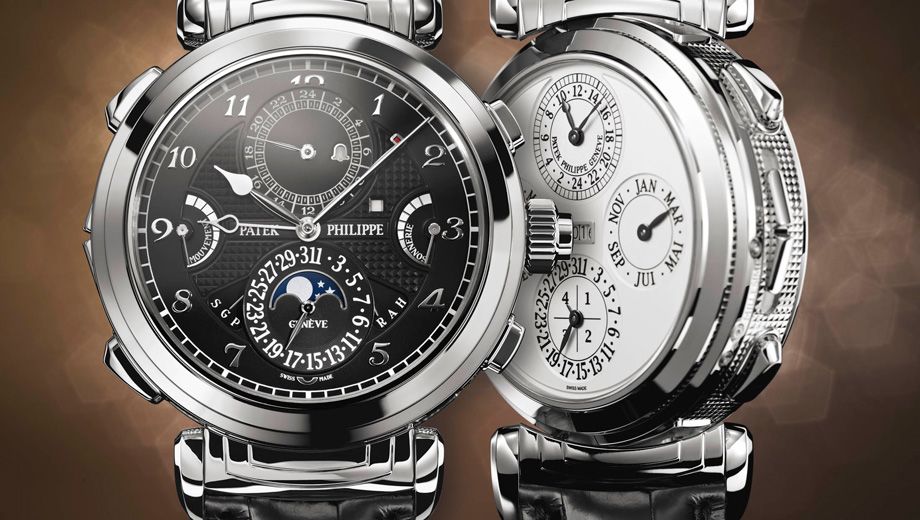
Everyone passionate about watches and clocks is on a first-name basis with Patek Philippe, the Geneva house founded in 1839. These fanatics will require little persuasion to see "The Art of Watches Grand Exhibition New York 2017," a clumsy title that is in direct opposition to the elegance of the timepieces on display.
The show – open through July 23 at the Bellini-and-prosciutto pleasure dome known as Cipriani 42nd Street in New York – is rife with horological delights.
It is free for the public to enter. It is expensive for emirs, oligarchs, and tycoons to buy the current Patek models on display, such as the New York 2017 Special Edition Ref. 5531, which combines a minute repeater and a world-time mechanism behind a dial that celebrates the Manhattan skyline at its cloisonné-enamel centre. But someone's got to do it.
Looking back in time
The real treat here, however, is the older stuff, gathered largely from the house's museum in Geneva, designed in 1919.
Other timepieces come from such institutions as the John F. Kennedy Presidential Library & Museum, and a few were made available from private collections.
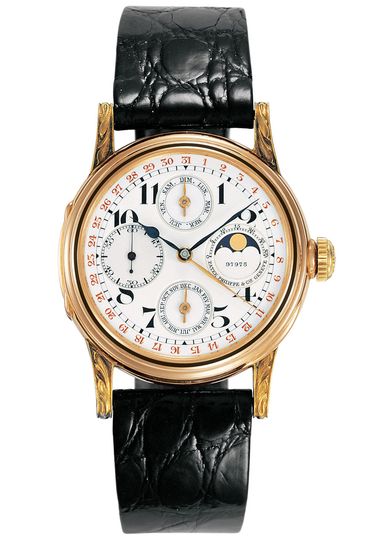
The meticulous toil of Patek's artisans has ensured that even visitors who don't especially care about watchmaking in itself will nonetheless thrill to witness its results.
Look, for instance, to the U.S. Historical Room, featuring a svelte chronograph (Ref. 130J), measuring only 35 millimetres in diameter, owned by Joe DiMaggio. The Kennedy Clock owned by the 35th president is also here. There's even some from people who never hooked up with Marilyn Monroe.
Other famous Patek owners represented include red-white-and-blue bloods such as jazz titan Duke Ellington, who owned a split-seconds chronograph; early Coca-Cola exec Asa Griggs Chandler, whose rectangular gold watch with Art Deco engraving is a mere 26 millimetres wide; and General George S. Patton, whose parents gave him a pocket watch when he was merely "Lieut. George S. Patton," as the engraving on its gold case demonstrates.
Pocket de résistance
Many of the stars of the show are pocket watches.
While the U.S. room houses an extraordinary collection of complicated pocket watches commissioned by the banker Henry Graves Jr, elsewhere you will find such gorgeous, double-faced, super complicated models as the Calibre 89, first introduced in 1989 and making its first venture outside the Patek Philippe Museum.
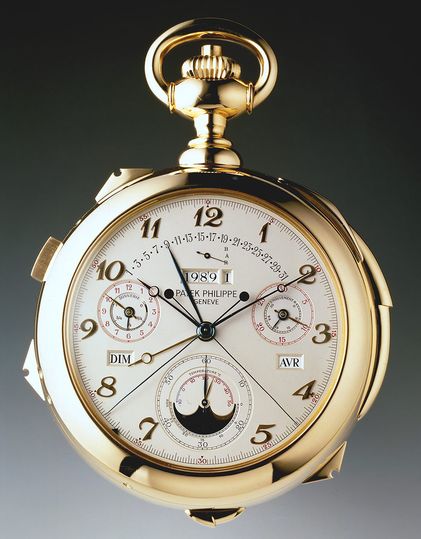
But the headliner here is the Grandmaster Chime, a stunning chunk of applied artistry with 1356 parts, some of which are devoted to its five chiming functions, inside its hand-engraved case.
Patek has paired this double-faced wristwatch, which made its debut in 2014, with a virtual reality installation that lets visitors immerse themselves in its working.
A separate listening booth allows you to experience the acoustic perfection of its chime. According to the exhibition catalog – which is, at UA$26, a steal – the Grandmaster Chime includes a "date repeater controlled by the perpetual calendar that indicates the date acoustically, as well as an alarm that when activated also strikes the time of day."
It might be necessary to put VR goggles on your face to get your head around that idea, at which point the bravura display of craft will ring your bell.
There's even a moment of unintended contemporary relevance. Visitors should spare a moment to chuckle at the wall text describing Kennedy's desk clock, given to him by the mayor of West Berlin.
Its three dials display the time at the White House, at the Kremlin, and in Berlin "to signify the establishment of a direct communication line between Washington, D.C., and Moscow."
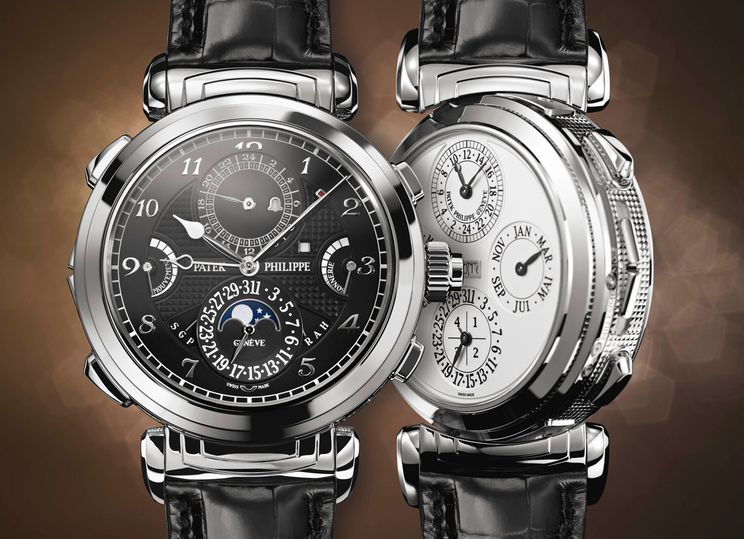
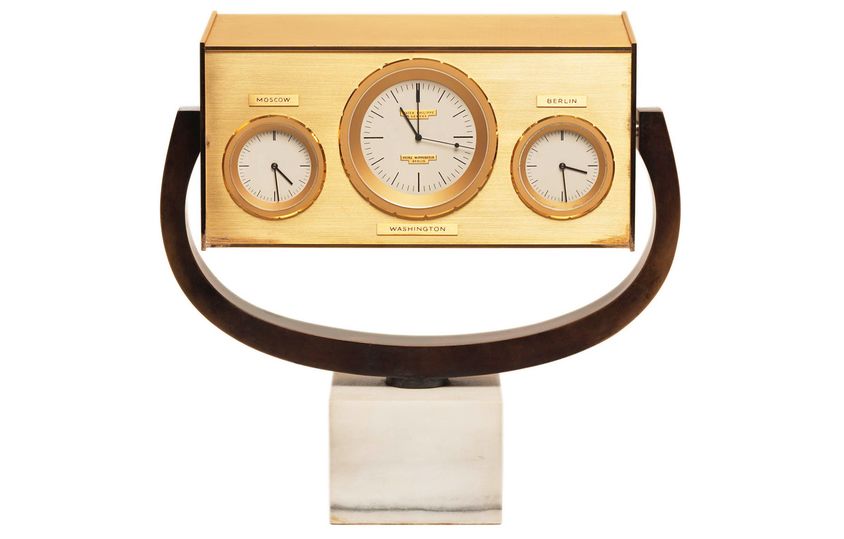
Hi Guest, join in the discussion on Visiting Patek Philippe's New York 'Art of Watches' exhibition